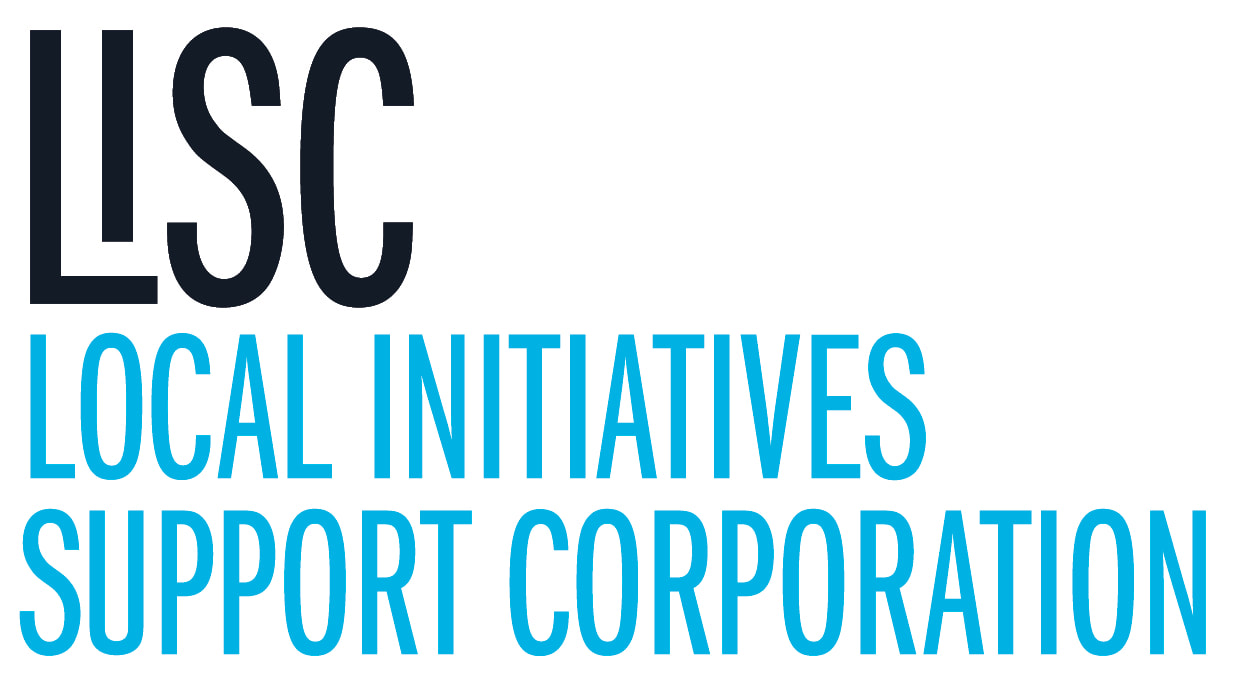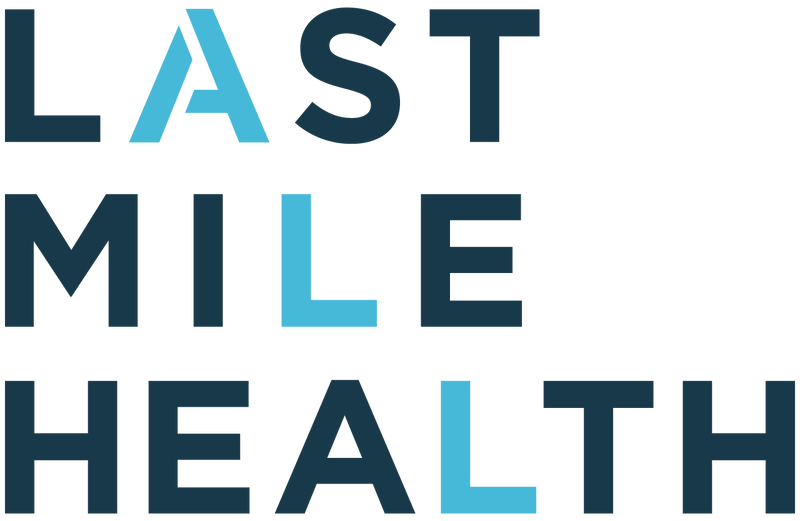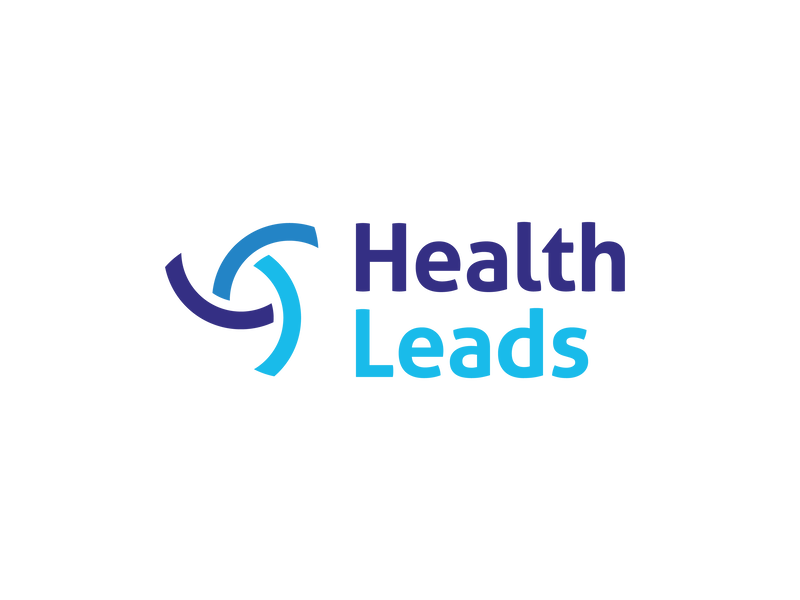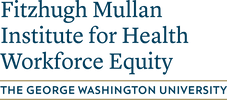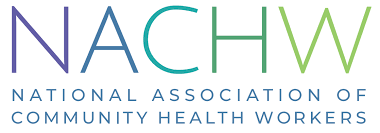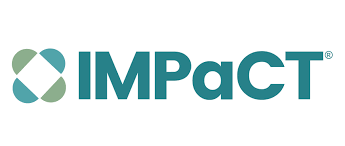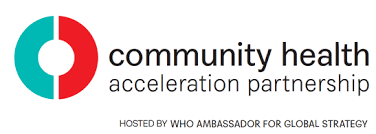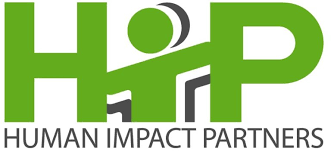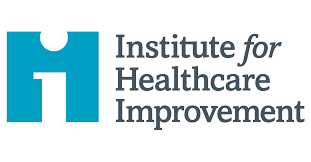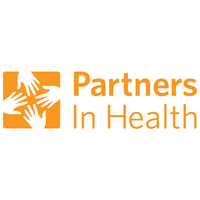To be effective and equitable, COVID-19 contact tracing and broader response, rebuilding and redesign efforts must be embedded in and shaped by disproportionately impacted and minoritized communities.
We urge state and local health departments to work with community leaders and adopt these Community-Based Workforce Principles as part of evolving community response and resiliency efforts.
HealthBegins helped form and actively supports a national Community-Based Workforce Alliance, a growing group of organizations ready to support cities, counties and states to put these Principles into practice.
How to start? Review the Principles listed below, including suggested strategies and resources. Download and use the Guide to help your state, county, or city advance these Principles. Visit the Community-Based Workforce Alliance website to get involved. Contact us to connect with a broader network of allies ready to support your efforts to advance these Principles. Stay connected to share your progress with us and a network of other Bright Spots committed to advancing these Principles.
Community-Based Workforce Principles for Contact Tracing
Principle 1: Recruit & manage with a racial equity framework

A contact tracing workforce should reflect communities disproportionately impacted by COVID-19.
Suggested Strategies
Include an equity, diversity and inclusion policy & adhere to national best practices in recruitment and hiring of workers from low-income, minority, and immigrant populations, including people with disabilities.
Provide a living wage and enabling supports like child care to contact tracers from highly impacted communities.
Include individuals who live and work in impacted communities in contact tracing governance & advisory groups. This includes community health workers & promotors (CHW/Ps), nonprofit staff, community leaders, and residents with disabilities.
Resources:
- PolicyLink COVID-19 & Race Principles
- MIT Living Wage Calculator
- Human Impact Partners Policing During COVID-19: A Public Health Messaging Toolkit to Invest in Health, Not Punishment
Brightspot:
- Virginia Department of Health – Health Equity Workgroup
- Established March 11, 2020. Embedded at the senior-level of the State Agency-wide Coronavirus Unified Command. Meets virtually every week to review policies and determine how vulnerable populations in the Commonwealth are (or are likely to be) impacted).
Principle 2. Invest in trusted voices, including Community Health Workers

Expand the roles and ranks of CHWs, promotores, & other trusted community-based workers.
Suggested Strategies
Expand CHW/P authority with Medicaid state plan amendments, and “essential critical worker” recognition.
Include the National Association of Community Health Workers, state networks of CHW/Ps, & other community-based workers as partners in planning, training and support of contact tracing & response efforts.
Apply CDC and other funds (e.g. section 1115 waivers, Dislocated Worker Grants) to pay CHW/Ps & other community-based workers a living wage to support a broad range of activities, including contact tracing.
Provide LHDs & CBOs with advance payments to support CHW/P activities in highly impacted communities
Resources:
- 2018 Bureau of Labor Statistics for CHWs (Suggested goal: Surge employed CHW/Ps to 2x current baseline by 2022)
- CHW Core Consensus Project (C3) Roles and Competencies & Checklist
- National Association of Community Health Workers Amplify CHWs During COVID-19 and Partner with CHWs During COVID-19
- Department of Homeland Security Memorandum on Essential Critical Infrastructure Workers
- NGA / ASTHO Roadmap to Recovery: A Public Health Guide for Governors
- See sections related to CHWs as well as Dislocated Worker Grants and other funding streams
- Medicaid state plan amendments
- Penn Center for CHWs Letter to CMS
- National Center for Healthy Housing Advancing the Role of CHWs: Engaging State Medicaid Offices
- Families USA How States can Fund CHWs through Medicaid
Principle 3: Strengthen connections with psychosocial services & systems

Integrate response efforts with systems to address psychosocial needs in highly impacted communities.
Suggested Strategies
Use geospatial, social vulnerability, and race/ethnicity data to deploy a community-based workforce to hardest-hit and most vulnerable communities.
Integrate validated, standardized screening items in case investigation systems to identify psychosocial needs* & use interoperable referral platforms to connect contacts to community resources.
Involve residents and adhere to community-based data governance, accountability and privacy standards.
Engage CHW/Ps & other community-based professionals to provide ongoing psychosocial support & care coordination for high & rising risk populations.
Resources:
- Data on community-level social vulnerability
- State and county DPH data
- CDC’s Social Vulnerability Index (SVI)
- Geocoded, risk-stratified data from claims databases, EHRs, & HIEs
- Geospatial software (e.g. ESRI, MySidewalk)
- Social Needs Screening Tools:
- CMS Accountable Health Communities Screening Tool
- Community resource databases & referral platforms (e.g. 211, AuntBertha, Healthify, NowPow) & community information exchanges (e.g. UniteUs, San Diego CIE)
- Best practices for community-based data governance, accountability and privacy standards
- A Human Rights-based approach to data
- ACLU Governance Principles for Contact Tracing Technologies
- CHOIR & Berkeley School of Public Health ACH Data Sharing Toolkit (see pg 16)
*We recommend coordination between vendors of case investigation/management software and community resource & referrral platforms to improve the capacity to assess and address psychosocial needs. With training, Contact Tracers and/or Resource Coordinators can then screen contacts for household acute psychosocial needs using validated screening items. In addition to counseling contacts on quarantine and referring them for COVID-19 testing, refer people with identified psychosocial needs to Resource Coordinators (ideally trained CHW/Ps). They, in turn, use community resource & referral platforms to support households.
Principle 4: Launch a community-based jobs program as a force multiplier

Boost response & recovery with a jobs program for unemployed workers from highly impacted communities.
Suggested Strategies
Leverage federal funds and national and state-based service programs to deploy a community-based jobs program.
Develop a state interagency plan (i.e. public health, workforce development, education) to launch a jobs program to support contact tracing, other response efforts, and long-term community recovery activities.
Recruit and pay unemployed, dislocated and other struggling workers from highly impacted communities with living wage jobs that meet contact tracing & other community needs.
Resources
- Leverage private foundation and corporate giving, as well as national service programs (which Congress is currently considering expanding), National Dislocated Worker Grants from the Department of Labor, and other federal disaster relief funds.
- National service programs
- Corporation for National & Community Service (AmeriCorps, Senior Corps)
- HHS (National Health Service Corps, Medical Reserve Corps)
- CDC (Funding workers to support state health departments)
- Congressional proposals
- “Health Force” Bill (U.S. Sens. Gillibrand & Bennett)
- Pandemic Response and Opportunity Through National Service Act (U.S. Sens. Coons, Reed, Klobuchar, Duckworth, Heinrich, Markey, Van Hollen, Blumenthal, and Durbin
Principle 5: Embed job training & pipelines to local careers

Provide job training to improve opportunities for long-term health and economic recovery.
Suggested Strategies
Use state and federal workforce development funds and programs to provide job and skills training to support contact tracers and other individuals in community-based jobs programs.
Include nonprofit workforce training partners, CBOs and community colleges to address basic skills gaps and prioritize training of individuals from disadvantaged communities and those facing barriers to employment.
Create a pipeline to local careers in local health departments and community-based organizations.
Resources
- National Dislocated Worker Grants from the Department of Labor
- National nonprofit workforce training and development partners
- State health workforce development agencies
- State and local workforce training and career development nonprofits
- Community colleges
- PolicyLink: Building an Inclusive Health Workforce in California
Brightspot:
- Baltimore Health Corps
- Baltimore will recruit, train, and employ more than 300 residents, including 276 CHWs, including 38 supervisors, for these roles. In addition, there are 10 employment development, 7 managerial, and 10 administrative roles.
Principle 6: Strengthen community infrastructure & financing

Align incentives and invest in local infrastructure for long-term health and community development.
Suggested Strategies
Support federal and state action to fund and preserve community nonprofits & mission-driven financial institutions that serve highly impacted communities and vulnerable populations.
Pay essential nonprofits in highly impacted communities per contracts even if operations are affected. Preemptively convert funding to unrestricted funds during the response phase.
Braid funds and invest in wellness trusts, outcomes funds & other place-based financing models that are aligned with achieving long-term health outcomes in historically redlined and marginalized communities.
Resources:
- National Council of Nonprofits
- Letter to Congress
- State sign-on letters
- Nonprofits and COVID-19 Resources
- CDFI (Community Development Financial Institutions)
- US Department of Treasury CDFI Fund
- LISC Rapid Relief & Resiliency Fund
- Grow with Google Small Business Fund (Opportunity Finance Network)
- Nonprofit Finance Fund
- Chronicle of Philanthropy article: A New New Normal for Foundation Giving & Assessments of Grant Proposals
- Map of COVID Community Response Funds
- Wellness Trusts
- Funders Forum on Accountable Health: Inventory
- Models from New York, California, Washington
- Three Workforce Strategies to Help COVID Affected Communities, Health Affairs Blog. Note section titled ‘Strengthen Community-Based Services And Advance Equity’
Guide to Community-Based Workforce Principles
Download a free copy of the Guide to Community-Based Workforce Principles to review suggested strategies and resources you can use to advance these Principles in your state, county or city.
How well is your state, county, or city advancing these principles?
What is a “community-based workforce”?
National and international emergency preparedness experts have long recognized a “community-based workforce” as an essential component of response and recovery capabilities.
As a complement to governmental public health workers, a “community-based workforce” includes community health workers, promotores, local nonprofit staff, & other trusted community-based professionals.
By launching jobs programs, states, counties and cities can also recruit and train lay individuals, including unemployed residents and recent graduates, to support and join a community-based workforce.
While skills and roles vary, members of a “community-based workforce” share common experiences and traits:
- Live in and share culture, language, and life experiences with the members of the communities they serve
- Possess strong relational expertise and interpersonal communication skills
- Have earned a deep level of trust with peers and neighbors
- Have strong relationships with and knowledge of local community-based resources
- Demonstrate a long-standing commitment to working in and advancing health equity in their communities.
Where did the Community-Based Workforce Principles come from?
In early May, the HealthAffairs Blog published “Three Workforce Principles to Help COVID-Affected Communities”. Based on themes outlined in the article, HealthBegins published the Community-Based Workforce Principles for Contact Tracing on May 19, 2020. These principles emerged from discussions HealthBegins has been having with allies and leaders across the country since March 2020, when COVID-19 infections began to surge in the US.
On April 23, 2020, HealthBegins convened and co-hosted a National Strategy Call to advance a community-based workforce strategy to pursue urgent health equity and public health priorities amid the COVID-19 pandemic. More than 400 attendees joined to hear from co-hosts and allies, including Last Mile Health, the National Association of Community Health Workers, the Penn Center for Community Health Workers, Health Leads, and Partners in Health. Followup conversations led to the formation of the Community-Based Workforce Alliance, a growing group of allies working to advance equity and community-based workforce members as part of ongoing response and recovery efforts.
-
Initial signatories of the Community-Based Workforce Principles
Rishi Manchanda, CEO, HealthBegins
Manisha Sharma, Fellow, CHCF Health Care Leadership Program
Laura Gottlieb, Director, Social Interventions Research and Evaluation Network (SIREN), UCSF
Denise Octavia Smith, Executive Director, National Association of Community Health Workers
Jamie Berberena, Regional Chapter Coordinator, Massachusetts Association of Community Health Workers
Jeffrey Oxendine, CEO, Health Career Connection & Co-Director, California Health Professions Consortium
Rebecca Morley, Founder & President, Rebecca Morley Consulting, LLC
Leana Wen, Visiting Professor of Health Policy & Management, George Washington University
Claire Qureshi, Senior Director, Community Health Acceleration Partnership
Sadena Thevarajah, Managing Director, HealthBegins
Nirav Shah, MD, MPH, Senior Scholar, Stanford University
Grace Rubenstein, Strategic Communications, HealthBegins
Dora Barilla, GVP Community Health Investment, Providence St. Joseph Health
Ellen Lawton, Director, National Center for Medical-Legal Partnership at George Washington University
Jay Bhatt, DO MPH, Principal, JDB Strategies
Leigh Kimberg, MD, Professor of Medicine and Program Director, PRIME-UCSF
Christine Barker, Executive Director, Fresno Interdenominational Refugee Ministries (FIRM)
Anish Mahajan, MD, MPH, Chief Medical Officer, Harbor-UCLA Medical Center
Savina McMurry, Community Health Worker, SAHS
Shoshanah Brown, MS, MBA, CEO, AIRnyc
Patrick Ma, MBA, Chief Operating Officer, AIRnyc
Sarah DeSilvey, Lead SDOH Informaticist, The Gravity Project & Rural Family Nurse Practitioner, NMC
Abner Mason, Founder & CEO, ConsejoSano, Inc.
Somava Saha, Executive Lead, Well-being and Equity (WE) in the World
America Bracho, CEO, Latino Health Access
Hana Arabi RDN, LDN, Nulife Clinics
Alexandra Quinn, CEO, Health Leads
Julia Ryan, Vice President – Health, Local Initiatives Support Corporation
Jill Feldstein, Chief Operating Officer, Penn Center for Community Health Workers
Maureen Bisognano MS, President Emerita and Senior Fellow, IHI
Maria Lemus, Executive Director, VISION Y COMPROMISO
Bonnie Ewald, Program Manager, Rush University Medical Center
Troy Murrell
Ali Khan, MD, MPP, FACP, Executive Medical Director, Oak Street Health
Diana J. Mason, PhD, RN, FAAN, Senior Policy Service Professor, Center for Health Policy and Media Engagement, GWU School of Nursing
Monica McLemore PhD, MPH, RN, FAAN, Associate Professor and Director, Reproductive Health Equity and Birth Justice CORE – UCSF
Carl Rush MRP, Principal Consultant, Community Resources, LLC and NACHW
Brian Rahmer, PhD, MS, Vice President, Health and Housing, Enterprise Community Partners
Andrew Goldstein, MD, MPH, Assistant Professor, NYU
Teresa Foster DO, NuVance HQMP
Amish Desai, MD MSc, Senior Medical Director, Oak Street Health
Bronwyn Baz, MD, Assistant Professor and Lead Physician, NWP Pediatric Hospital Medicine FAAP, OHSU
Justin Lowenthal, National Board of Directors, Doctors for America
Camille Clare MD MPH, Region 1 Trustee, Secretary of Board of Trustees of the National Medical Association
Paul Davis, Member, Right to Health
Andrew Broderick, Research Director, Public Health Institute
Patty James, Nutritionist, Researcher, Author. Culinary Educator, Patty James M.S., N.C.
Panna Lossy MD, CMO IsoCare & UCSF Clinical Faculty, Santa Rosa Family Medicine Residency
Drew Halfmann, Associate Professor, UC Davis Sociology
Adam Schwartz, M.D., Assistant Professor, NYU School of Medicine
Abraham Young MD, Family Physician, Community Health Center
Julie Graves, MD, MPH, PhD, Associate Director of Clinical Services, Nurx
Uma Tadepalli, MD, Assistant Medical Director, Senior Community Care of North Carolina
Sriram Shamasunder, Co-Founder and Director, UCSF HEAL Initiative
Leilani Zimmerman, FNP-C, Santa Rosa Community Health
William Jordan, MD, MPH, Clinical Assistant Professor, Albert Einstein College of Medicine
Stephanie Burdick, Community Health Policy Analyst
Amber Hewitt, Director of Health Equity, Families USA
Mark Humowiecki, Senior Director, National Center for Complex Health and Social Needs, Camden Coalition of Healthcare Providers
Robert Pezzolesi MPH, Convener, Interfaith Public Health Network
Keegan Warren-Clem, JD, LLM, Managing Attorney of Medical-Legal Partnerships, Texas Legal Services Center
Solange Gould, MPH, DrPH, Co-Director, Human Impact Partners
Lili Farhang, Co-Director, Human Impact Partners
Elissa Bassler, CEO, Illinois Public Health Institute
Kathleen Perkins MPA, Director, Kathleen E Perkins, LLC dba Bench Coach Consulting
Sally Sutton, Program Coordinator, New Mainers Resource Center, Portland Adult Education
John Shaw, President, Next Wave
Keandra Wilson PMP CSM, Project Manager, HealthBegins
Carl M. Toney, P.A., Health Care Planning Consultant, Association of Clinicians for the Underserved
Sara Bader, MCD, CPHQ, Senior Manager, Upstream Quality Improvement, HealthBegins
Kedar Mate, Chief Innovation Officer, Institute for Healthcare Improvement
Dory Escobar, Founder, Director, Coaction Institute
Tene Franklin, Vice Chair, Nashville, Davidson County Board of Health
Annie Brack, RN BSNHCP, Care Coordinator, TCHD
Young-Shin Lee, Associate Professor, San Diego State University
GerriAnne Huey, MHA, Program Coordinator, DSHS
Matt Malone, Head Coach, Tstreet Volleyball Club
Kelly Malone, student, UCSB
Makini Chisolm-Straker, Assistant Professor of Emergency Medicine, Icahn School of Medicine at Mount Sinai
Lauri Winter, independent consultant, self employed
Janelle Sauz, Researcher, New York University
Sarah Lampe, President and Executive Director, Trailhead Institute, Colorado Public Health Workforce Collaboration
Dianne Ritchie, Founder, Community Health Innovations of RI
Holly Scheider, public health advocate and consultant, Holly Scheider consulting
Pamela Guthman, DNP, RN-BC, Assistant Professor
Deanna Wathington, MD, MPH, Dean, College of Health Sciences, Bethune-Cookman University
Denise Cawley, Operations Officer, Healthcare Consulting
Alma Swisher MA, CHW, Director, GCBC
Amelia Harju, Population Health Fellow, Wood County Health Department & UW-Madison Population Health Institute
Tara Immele LISW-S, PCBH Coordinator, GCBHS
Zinzi Bailey, ScD, MSPH, Founder & CEO, Health Equity Research Solutions, LLC
Gabrielle Solis, MPH, Nutrition Project Coordinator, The Fund for Public Health NYC
Mardge Cohen, Physician, Boston Health Care for the Homeless Program
Kristina Gelardi, PhD, Research Consultant, Harder+Company Community Research
Michelle Frye-Spray, Concerned Citizen,
Erica Reaves, Consultant, EquityfortheHealthofIt
Catherine Cooksley, MPH, DrPH, CPH, retired epidemiologist, part-time educator
Madison Swanson BHCM, College Graduate, independent
Kayla Ringelheim MBA/MPH, Manager, Manatt Health
Jeremy Cantor, MPH, Senior Consultant/Project Director, JSI Research & Training Institute
Maura Dwyer, Senior Officer, Pew Charitable Trusts

